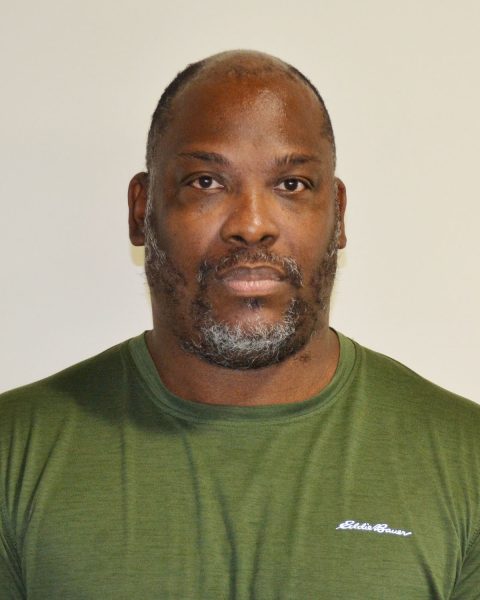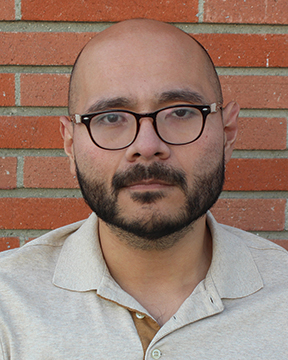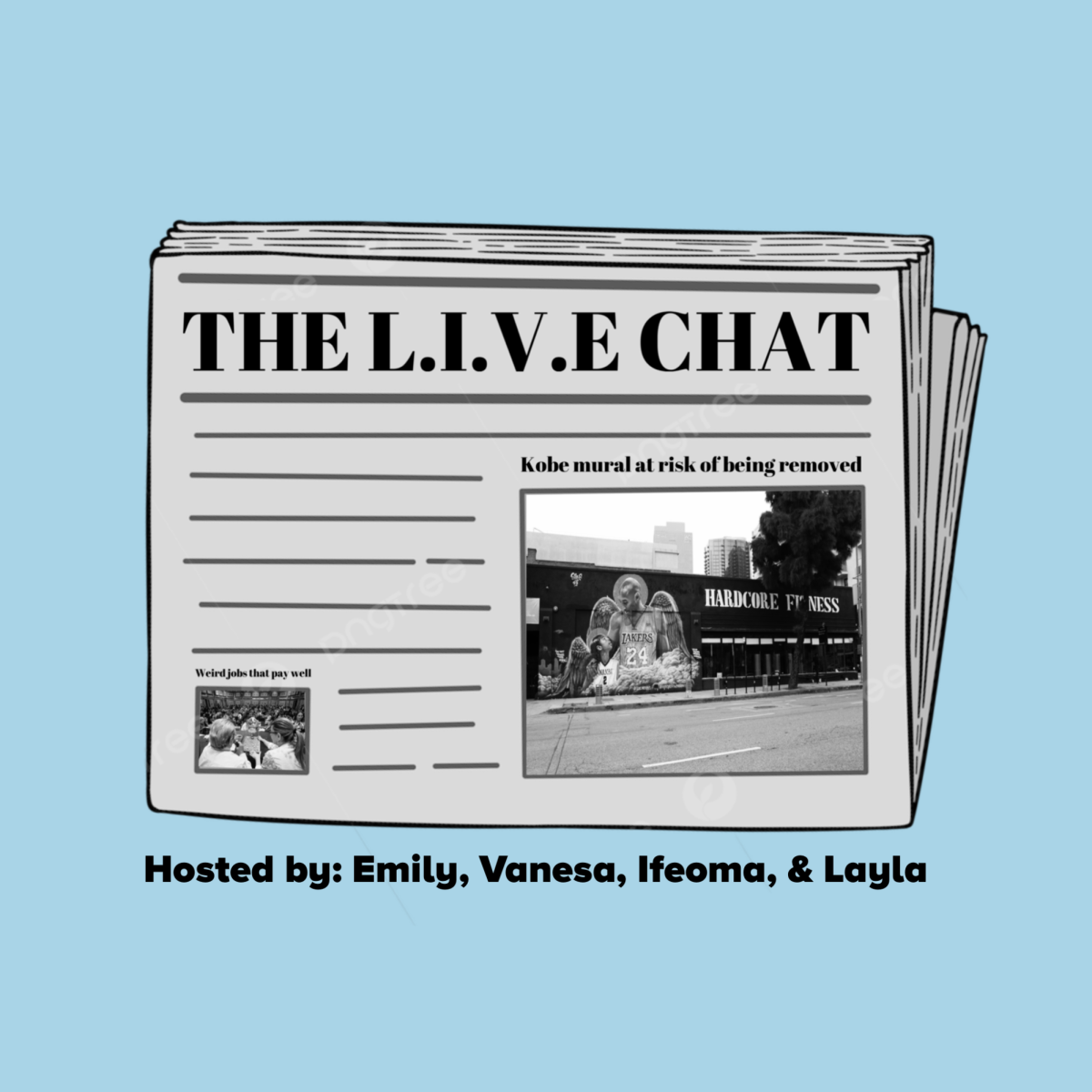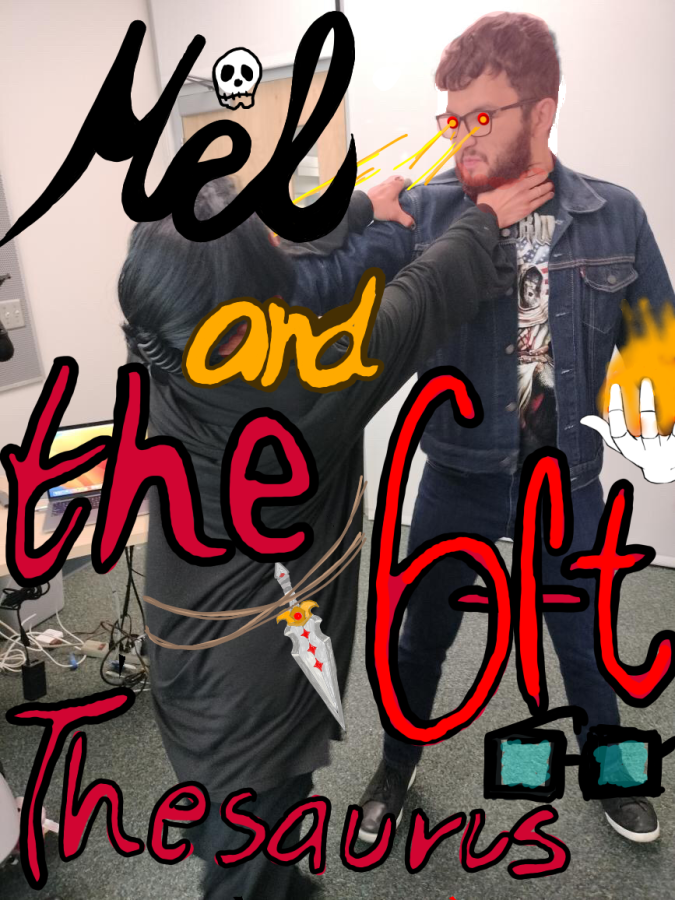Derrick Coleman 0:01
Hello and welcome back to overcoming disabilities.
Denise Ng 0:02
I’m Denise.
Luis Lemus 0:03
I’m Luis.
Derrick Coleman 0:08
Luis, you want to introduce our topic for today?
Luis Lemus 0:10
Sure.
The topic for today is being disabled and oh for coming our own shortcomings in quote, normal world and how we get by.
Derrick Coleman 0:38
Nice. You have anything to say about that, Denise?
Denise Ng 0:42
Well having a disability, you, you look for ways to be able to adjust to everyday life.
You know, for me, being exposed to people who are wearing strong perfumes, cologne that contain ingredients that I’m allergic to has become a challenge.
You know, if it wasn’t for DSPS, then I probably wouldn’t be here because I would not be able to, to tolerate being exposed to those things. And I mean, what is normal today?
I mean, is our world normal?
That’s what I think.
Luis Lemus 1:28
Good question. I think “normal” in air quotes varies on a person by person basis, but for me, Normal is you don’t you aren’t In a chair, you’re bright and moving on your own to be and able to study and pass class without a need for an aid.
How about you, Derek?
Derrick Coleman 2:30
I would say walking.
Everybody takes it for granted.
I don’t.
Cause for how much I walk, I need to stop a take a rest.
I’ve had even, we talked about this in our meeting last week. I’m walking across campus and people just looking at me at the way I walk.
It’s like I rather for you to ask me questions, then just look at me.
Luis Lemus 3:01
Yeah, it’s judging a book by its cover you
Denise Ng 3:11
If I already see you walk, I would think that you’re no different from anybody else.
Derrick Coleman 3:15
True.
Denise Ng 3:16
But that’s just me. I mean, I, you have difficulty walking. I have difficulty walking long distances because I can’t breathe. Right?
Derrick Coleman 3:26
But it’s not only because of my celebral palsey, but it’s also my scoliosis in my back.
Denise Ng 3:34
So, so you think people judge you
Derrick Coleman 3:37
All the time.
Denise Ng 3:39
And how do you how do you how do you handle that?
I mean, because I feel the same way when I start to breathe heavily and I’m huffing and puffing.
And I know that people are looking at me like strangely, but no one ever offers to help.
No one ever offers to say Oh, no one says are you okay?
Derrick Coleman 3:59
I would say because of my passion for photography.
Once I pick up my camera will have a different attitude.
I don’t know. I don’t know how that sounds.
Denise Ng 4:12
is it people have a different attitude or you have a different attitude that gives you more confidence? Well like because you use your vision and your creativity that’s not affected, right?
Derrick Coleman 4:26
I think it’s both.
Luis Lemis4:28
Yeah, I think that the tools, the many tools we have, whether a camera whether XYZ.
Derrick Coleman 4:47
Is like you Luis.
When I found out the way he writes his stories, I was like damn.
Denise Ng 4:55
But his stories are pretty good
Derrick Coleman 4:57
Yeah.
Luis Lemus 4:58
Thank you.
Derrick Coleman 4:59
Do you know how he writes his stories?
Denise Ng 5:00
He writes his stories. Doesn’t he have somebody write it for him? He does. He transcribes
Luis Lemus 5:06
Siri.
Denise Ng 5:10
Siri can’t even understand what I say
Luis Lemus 5:12
No, she’s both sides of the coin.
One second, she gets you and all is well, then next entry, you’re wondering where she thought to get her answers.
Denise Ng 5:40
I’m just lucky when Siri calls the correct number for me.
Derrick Coleman 5:47
I mean that that’s that’s…
Denise Ng 5:51
How did you get sorry to work so well for you?
Luis Lemus 5:54
Try and try.
You can say, for example call john or call mom, and she comes out with something offensive your mom, like what the heck, but you deal with the good, the same way you deal the bad.
Denise Ng 6:39
Wonder if we could contact apple and then say hey, like what are you doing to make Siri better understand people with disabilities?
Luis Lemus 6:50
Yes, that would be helpful.
Derrick Coleman 6:53
I would try to use in pages?
Luis Lemus 6:55
Uh no.
Derrick Coleman 6:57
So is is the Apple version of Microsoft Word.
Luis Lemus 7:03
Okay.
Denise Ng 7:04
Can you transcribe?
Derrick Coleman 7:06
Yes.
Luis Lemus 7:08
Alright, I’ll look into it.
Derrick Coleman 7:11
I’ll show you afterwards.
Luis Lemus.
Alright ,thank you.
Derrick Coleman 7:17
I mean, it’s it’s funny, but I came up with our topic for next week already.
Denise Ng 7:23
What is it?
Derrick Coleman 7:24
The devices we use as disabled people?
So Luis could talk about his phone. I could talk about my camera and my iPad. You can talk about…
Denise Ng 7:37
I have nothing. I have DSPS. I have Alicia. (laughter)
Derrick Coleman 7:42
You could talk about the people who help you.
Denise Ng 7:45
Yeah, siri doesn’t understand a word I say.
Sometimes I use foul language towards her after I get frustrated.
Luis Lemus 7:58
Same here.
Derrick Coleman 8:01
I think we all do.
Luis Lemus 8:02
Yeah. I’ll say you expletive.
She comes with who knows what.
She is a gift and a curse.
Derrick Coleman 8:20
Oh my.
Oh my
That is crazy.
Denise Ng 8:26
Well, what I do use for disabilities is like Kurzweil 3000.
Derrick Coleman 8:31
You could talk about that.
Denise Ng 8:32
Yeah. Kurzweil 3000 in it. Of course it it’s audio it reads to you, but you could also make the font bigger and then you can cut and paste and you can do your own notes and stuff like that. So sometimes I’m in class and I can’t see the font in the book because it’s so small. So I just will open up Kurzweil.
Derrick Coleman 8:57
Nice
Luis Lemus 9:00
That’s a good option, a good tool to have in your pocket because I feel in some texts books, they cram as many words as they can on that single page.
Denise Ng 9:26
One problem is, is if there’s like, so many columns, it’ll just skip over, skip over, skip over and then go to the other page.
Denise Ng 9:37
But were talking about that next week, right?
Derrick Coleman 9:39
Yes, yes, yes.
Denise Ng 9:40
So, so, so for me, I think I embrace my imperfections. And I think that makes me normal.
Luis Lemus 9:50
Yeah, yes. coming to terms with what you are dealing with.
I feel okay.
Big deal you’re in a chair.
I don’t let that stop me from achieving what I want to rather than being stuck in a room doing nothing I am here and before I go to the gym people there are somewhat apprehensive when they can tell I need help getting on machine for example.
But they’re..they do what they can and for that I am grateful for them not my short comings be the ending of my story.
My journey.
Derrick Coleman 11:28
But you see, and I have noticed this about you ever since I met you is that, you may not be able to physically move, but your brain is so they’re totally different.
You get what I’m saying though?
Denise Ng 11:46
Yeah, exactly.
Derrick Coleman 11:47
You can, you can. I don’t know how to say this. You can shock the hell out of people with the words is speak.
Luis Lemus 12:00
Oh yeah. Thank you.
Derrick Coleman 12:01
You’re welcome.
Derrick Coleman 12:02
I mean is is is almost like what one of the quotes that I posted this morning on my Twitter account. It says so many of our dreams at first seem impossible then they seem in improbable and then when we summon that will, that will, that will, they soon become in, in, in ,invariable Christopher Reeve
Denise Ng 12:35
When I first came back to Cerritos College, I was not enrolled in the DSPS, because for me, I hid my disabilities. You know, I didn’t want people to know, that you know.
Luis Lemus 12:48
you’re that that disabled person.
Denise 12:54
Right and that just them sitting next to me, could kill me, right. It was until I was in my first class and after a couple of months a student, I guess she showed up. She had been out for all those classes and it was a nine-week course. And she was wearing a scented lotion that contained an ingredients that I’m allergic to. So within like 10 minutes, I started coughing and then I started choking. I used my inhaler didn’t work, right. my inhaler would just opens up the airway, right? But it you know, takes 10 to 15 minutes to work. And the teacher the professor wouldn’t even dismiss me wouldn’t let me leave. So I carry Benadryl. So you know, I, I took benadryl waited a while and then I went home, you know, but the effects that it has on my body afterwards and healing Right, because your throat closes and your tongue swells. You know, it’s not like, okay, you’ll be okay after, you know. So I hid it. And then after the fourth time, I just wandered around campus because I was on Benadryl. I didn’t want to drive. And I would go to the library or the success center actually, and they thought I was high. So they would look at me differently, right? Because I was on Benadryl. And that’s when I found DSPS. But they were closed because it was a Saturday. So then, you know, my first day back at school, I went in there, and that’s when I, I met Judy. And then she said, this is how you sign up. This is what you need, and let’s get you protected. And so, in the beginning, my professor I mean, everybody already knew it was me, but he was forced to make an announcement. asking people to refrain from wearing fragrances and so forth and so forth. And he did not like that at all. His his, his pride was being challenged because he was forced to make that, hat announcement. And it’s supposed to be an anonymous person, right? But, you know, of course, everybody knew it was me. And so the girl continued to, to wear the lotion, she would actually come into class and we she would sit down in the same on the same table. So she would come into class, she would put the lotion on and just like, and then I would be like, you know, what’s going on? So, some people have the attitude where it’s your problem, not mine. You know, if something happens to you, that’s not my fault. You deal with it. So the actual dean of the department emailed her and asked her to refrain from wearing it. She did and there were only like, I don’t know, maybe two weeks left in the nine week course. And so yeah, I didn’t do very well. But that Professor, he’s still here. And, you know, I asked that he get ethics training and some sort of other training in in the classroom. Most classrooms have what to do in case of an emergency. Right. He did not have that there. He did not have any accommodations for people with disabilities.
Luis Lemus 16:33
Machimso
Denise Ng 16:35
He’s still here. I see him walking around. He tried to he actually tried to force me to drop out of college.
Luis Lemus 16:43
Wow.
Denise Ng 16:44
So I, you know, after a few classes, you know, the announcements made. Everybody knows it’s me now because, you know, they see me having an asthma attack or an anaphylactic reaction.
And most people have have said, Okay, how can I help? What do you need? While others are like, I just put a little bit of lotion here in here perfume and I went like this and I came and I sat behind you
Luis Lemus 17:19
That’s enough
Denise Ng 17:20
Yeah, that’s enough. I am. This just happened last week and I said, Yeah, but you’re a little bit of perfume could kill me.
Luis Lemus 17:27
Yeah.
Denise Ng 17:28
You know, you saw my throat close. You saw my head. I mean, my legs in my head went numb. I was ready to pass out. Alicia was gonna call 911 so I mean, these are Is that normal? It’s normal for me.
Luis Lemus 17:47
Yeah. The eye gazes. I become numb to it. It sucks, but that’s normal.
Denise Ng 18:02
I feel like we have to fight for it to be normal.
Derrick Coleman 18:05
Yes.
Denise Ng 18:08
So if I had anything to say in closing that’s what I would say.
Luis Lemus 18:12
No, same here
Derrick Coleman 18:13
I will let close it.
Luis Lemus 18:15
I’m sorry.
Derrick Coleman 18:16
I will give the final remark all
Luis Lemus 18:23
I guess that everyone’s normal, it varies and we should all be courteous to one another and what they might have, what their reaction might be. and I feel if we were that way that this whole college experience would be a whole lot easier for a lot of us.
Derrick Coleman 19:09
This is overcoming. I’m Derek.
Denise Ng 19:14
And I’m Denise.
Derrick Coleman 19:15
I will see you guys next week.
Transcribed by Denise Ng and Quinae Austin











